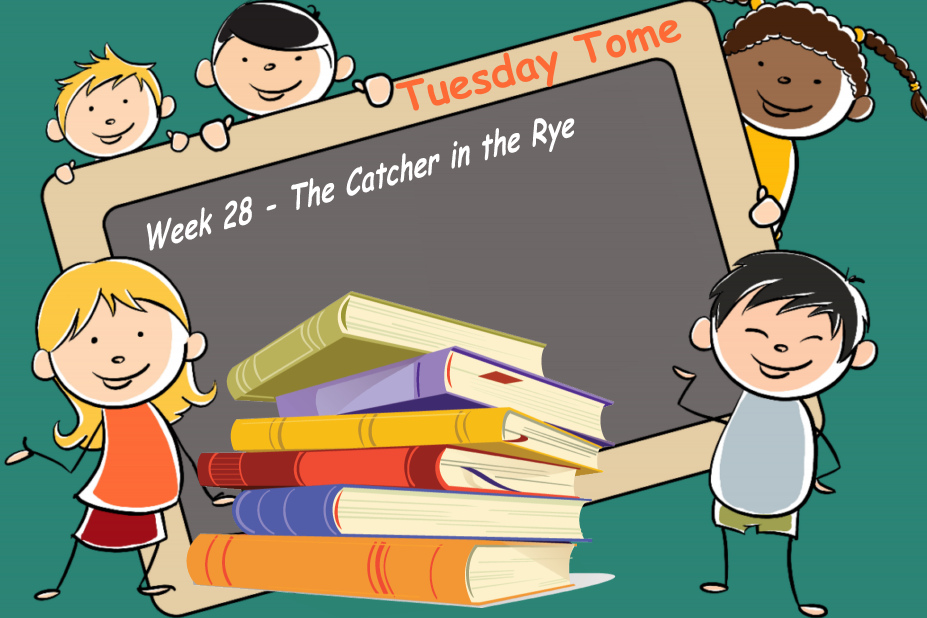The Catcher in the Rye is not only a classic, it is a controversial classic. At some point, it was the most required and the most banished book in America’s classrooms. Published in 1941, it has sparked controversy among teachers of English literature and also among critics, who struggle to decide which genre this book belongs to. Is it a novel? Is it a memoir? Is it an autobiography? Is it something else altogether?
I read portions of it in my English class growing up in Romania and, of course, I read the plot online, but have never read it word for word. Its language, I really dislike. That’s probably why I have stayed away from it all these years. Plus, once you have solved your own adolescent angst, it is so hard to go through it all over again even vicariously.
It took me 150 pages (about half way through the book) to finally be able to ignore the bad language. Which says a lot about the power of adaptation, right? It was about that time that I started seeing all kinds of things in the book beyond the obvious.
The most important thing for me was to realize that Holden Caulfield wanted to grow up and start a family in the country. Growing up in New York City, surrounded by “phonies” all along, simply taught him the biggest lesson any person can learn: living in the country keeps things real. Not only that. He wants to be a homesteader AND – wait for it – a homeschooling parent. That’s right. This kid who went to all sorts of expensive, private schools wants to homeschool his own children.
His description of these private boarding schools is enough to turn one completely against them. This one kid got bullied so much, he preferred to jump out the window and die than continue with the status quo. Premarital sex and underage drinking run rampant. The teachers are boring and obnoxious. Some care, here and there, but even the one teacher Holden likes seems to make a pass at him one night.
The book never really clarifies if the teacher’s gesture was a sexual one, but Holden felt weird about it and just took off. He planned on never seeing this teacher again. As a homeschooling mom, this book spoke to me on so many levels. This kid is totally disconnected from his parents. His father is a lawyer who makes a lot of money but has no emotional availability for his children. His mother – poor thing – is mourning the loss of one of her sons and so she is a nervous wreck.
At one point, Holden says all mothers are slightly insane – to me, the best quote in the book. He is right, too. Once you become a mom, all your focus is on your children’s survival, not your own anymore. Which can seem insane to most people who do not have children of their own.
Holden himself seems to be in a post traumatic stress himself. Still mourning the loss of Allie, his younger brother, still in shock after one of his friends in school threw himself out the window to escape bullies, still completely disinterested in school activities. Holden is depressed and lacks any kind of compass to know how to govern himself. He just wants to talk – to anybody that would listen. The trouble is, nobody in his life wants to listen.
He also wants to catch kids playing in a rye field. He wants to catch them before they grow up, before they hit themselves against the stones of reality and adulthood. He wants to keep others from hurting the way he is. How noble! This kid has a bleeding heart and nobody is paying attention.
His sister and this one teacher – before the sexual gesture – seem to be the only ones Holden can turn to. My heart goes out to Holden. He needed a strong bond with his parents and they just would not give it to him. Note to self: don’t be like Mr. and Mrs. Caulfield.
